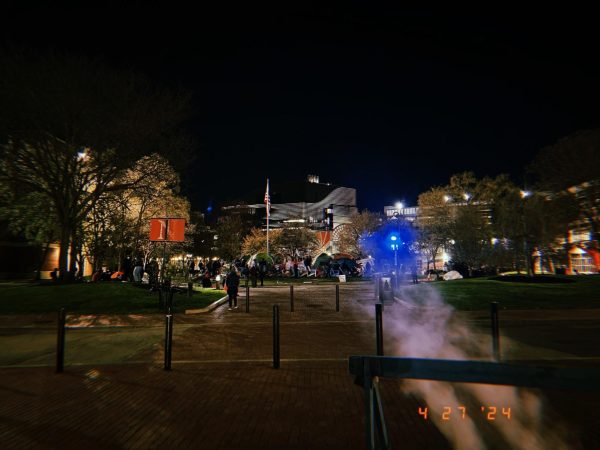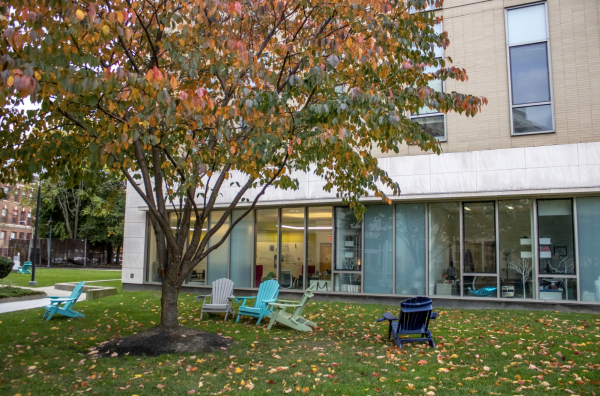By Mary Commisso
Contributing Writer
We all know the feeling—so little time, so much to do. Simmons students work hard, and by mid-semester, we often consider heading to bed at an earlier hour. We blame it on our tests, our homework, our clubs and activities, and our personal lives, but there’s another reason we’re getting so tired: the days are getting shorter.
Whether we notice the gradual shortening of the days, or it hits us on the first day it’s dark by 5 p.m., we all feel it.
Psychologically, feeling more tired as the days get shorter is completely natural. Research suggests that our neurotransmitters play a significant role in getting used to the shorter days.
Neurotransmitters constantly spread signals throughout the central nervous system, so it makes sense that they’d play a large role in this transitional period.
Serotonin, a neurotransmitter that affects mood, body temperature, and sleep, evolutionarily relies on our exposure to light. Decreased production of serotonin can lead to an excess of melatonin, which affects our sleep pattern and general circadian rhythm.
Specifically, excess melatonin production can make us feel drowsy sooner, or make our feelings of drowsiness more severe.
Our circadian rhythm takes time to adjust to changes in light and temperature. However, this is a subconscious process. We do not actively change our circadian rhythms.
Therefore, when we suddenly notice a change in the daylight patterns and the weather, we call attention to a part of ourselves we do not usually control consciously. This can be uncomfortable to think about, but it does help explain why we feel so tired.
Even as the weather gets colder and nighttime comes more quickly, it is important to spend a considerable amount of time outdoors.
Leaving windows open in dorm rooms can help, but going for walks and sitting outside offers more exposure to natural light. On a sunny day, spend some time outside.
If you can’t take a study break to spend a little time outdoors, consider sitting in the Fens next to the wall of windows, or in a sunny spot in the library. Solar exposure during the day can buy you time to get even more work done after dinner.
Absorption of vitamin D is facilitated by calcium, so incorporate some dairy into your diet if possible. Also, consider choosing foods that provide healthy energy, such as bananas and apples.
For those who are mildly irritated by the less picturesque seasonal transitions like shorter days and dropping temperatures, many of these strategies will have positive effects.























